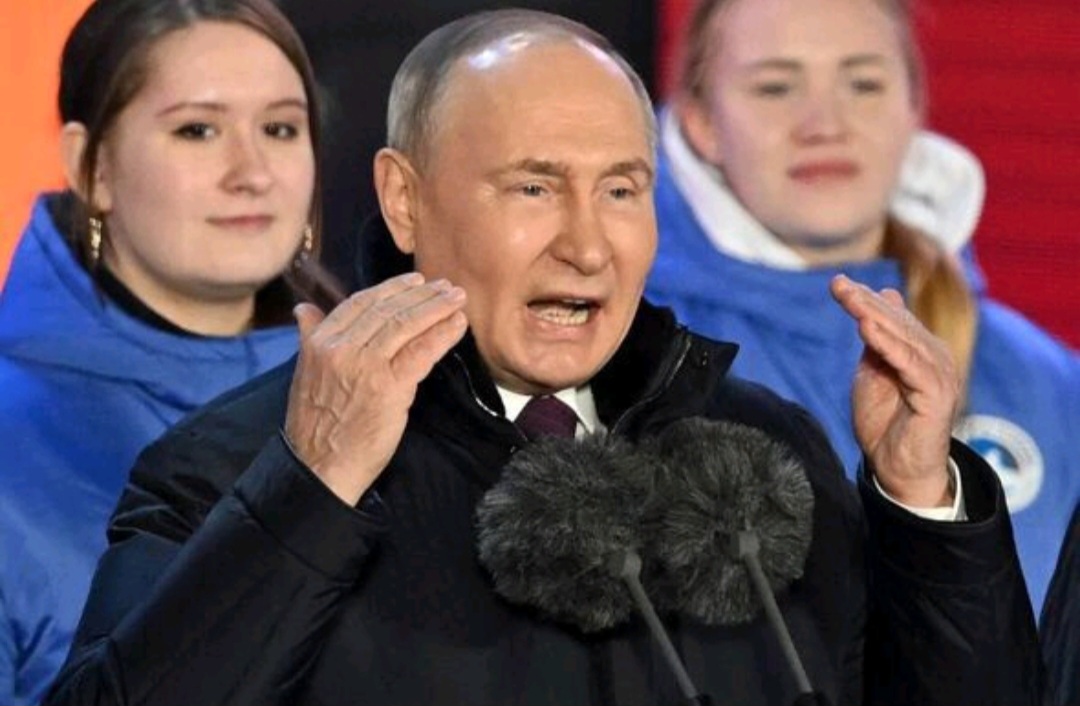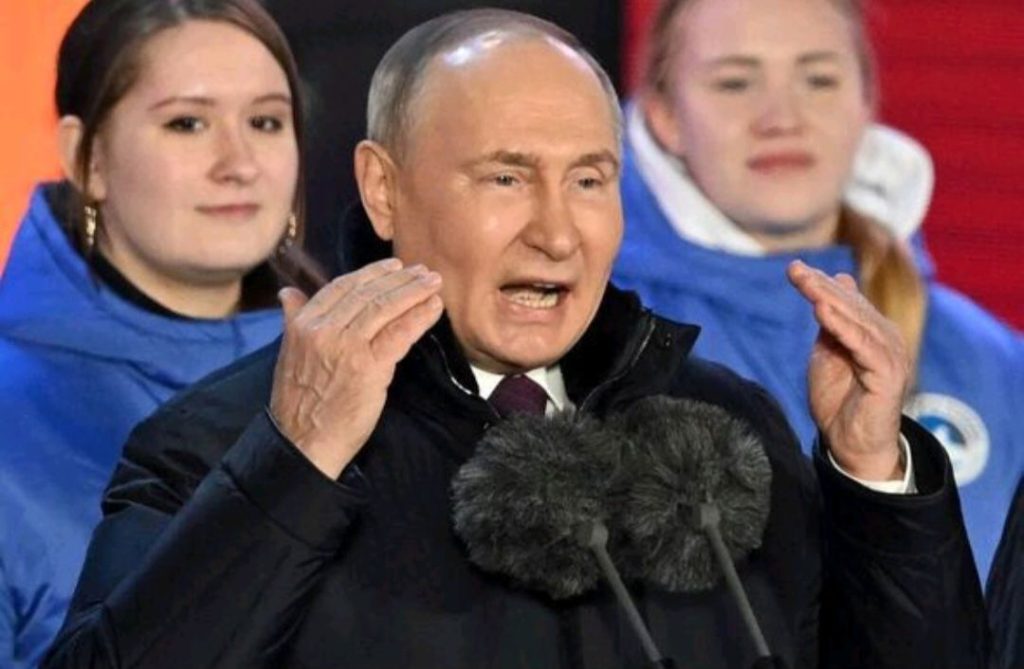
Military experts are raising alarm bells about the potential for a catastrophic scenario involving a nuclear strike aimed at the United Kingdom. Retired Colonel Simon Diggins has ignited a contentious discussion by suggesting that Vladimir Putin might contemplate targeting Britain with a devastating nuclear weapon, effectively knocking it out of any hypothetical World War 3 scenario.

Colonel Diggins, a seasoned military and defense analyst, argues that the UK’s geographical vulnerability, combined with Putin’s animosity towards Britain for its staunch support of Ukraine, makes it a prime target for such an attack. The focal point of concern revolves around the possibility of Russia deploying its formidable RS-28 Sarmat intercontinental ballistic missile, ominously nicknamed “Satan II,” capable of inflicting catastrophic damage on a target nation.
According to reports by Express, the RS-28 Sarmat is designed to obliterate an entire country with a single strike, underscoring the magnitude of destruction it could unleash. Colonel Diggins points to speculative claims suggesting that Russia might aim this apocalyptic weapon at the Irish Sea, triggering a colossal tsunami wave towering up to 1,640 feet high. Such a deluge, carrying high levels of radiation, could transform significant portions of the UK into a desolate “radioactive desert,” leaving devastation in its wake.
The retired colonel’s warnings come against the backdrop of Putin consolidating power in Russia, with a recent presidential election widely dismissed as a sham by Western leaders. Putin’s renewed grip on authority has coincided with his uncompromising stance in the conflict with Ukraine, as billions of dollars in military aid to Ukraine remain stalled amid political discord in the United States.
Doubts loom over the future trajectory of US foreign and defense policies, especially with the looming prospect of a potential return to the White House by Donald Trump in 2025. Colonel Diggins emphasizes the urgency of the situation, asserting that the threat of Russian aggression is not a distant possibility but rather a looming reality, with the UK standing at a critical juncture in the face of this peril.
The vulnerability of the UK is exacerbated by its diminishing defense capabilities, marked by planned cuts to the size of its regular army and persistent challenges in recruitment and retention. Despite the rhetoric of UK politicians, Colonel Diggins contends that the nation’s defense posturing falls short of the robust capabilities necessary to deter adversaries like Putin’s Russia.
Calls for bolstering military spending and readiness are gaining traction, amidst growing apprehensions that Russia’s belligerence could escalate into a full-fledged global conflict. The specter of a potential Russian incursion into a NATO member country, triggering the alliance’s collective defense mechanism, looms large, with Baltic states like Latvia and Lithuania perceived as potential flashpoints.
In response to these concerns, the Ministry of Defence emphasizes ongoing efforts to strengthen the UK’s defense apparatus, citing record investments and sustained increases in defense spending. Chancellor Jeremy Hunt’s confirmation of the government’s commitment to invest 2.5 percent of GDP in defense underscores the priority placed on safeguarding national security amid evolving geopolitical challenges.




